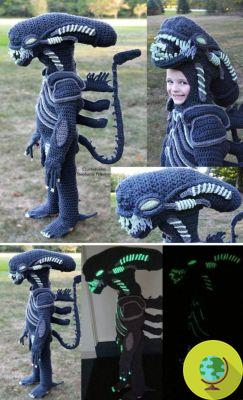
Children undoubtedly need love and affection but the importance of rules should not be underestimated. In fact, they too allow them to grow into safe and happy adults.
Don't store avocado like this: it's dangerousChildren undoubtedly need love and affection but they should not be underestimated the importance of rules. In fact, they too allow him to be able to growing up to be confident and happy adults.
Educating their children in the best way is the goal, not easy at all, of all parents. As with everything, the paths that can be taken are different even if there are some fixed points such as the fact that the little ones need rules to follow.
Most parents find it difficult to dictate rules and put limits on children, sometimes due to weakness (undoubtedly saying no, especially in some cases it is tiring), partly because they do not know how to do it or because of the difficulty of keeping the point. in the face of the inevitable whims that follow.
Also in this case empathy is the starting point. Knowing your emotions and empathizing with those of children is essential to find the right way to pass the concept of rule to the little ones. This does not mean, however, that since one has become in tune with the emotions of one's children, they are allowed to behave as they see fit. Children need to have limits and rules but, fundamentally, these must be few and very clear.
Because the rules are important
Even if they do not initially accept them, rules and limits for children are important to give them security as they allow them to experience situations they already know and which in this way are predictable. The child therefore knows how to behave in the face of what happens to him and learns to move in the world.
The important thing is that the rules are not too many (and therefore, on the contrary, generate confusion in the child) and that they are repeated consistently and consistently by both parents and by the adults of reference.
On the contrary, children without rules are stressed children and this can result in the appearance of very strong or exaggerated reactions to situations they do not know how to deal with. In fact, not having the tools, there is a lack of the necessary security to ensure that they can get out of it at their best.
Often saying no to your children is difficult but it is an important part of the relationship. As the title of a well-known book also says, no help to grow and they prevent the child from being too self-centered or believing himself omnipotent (we told you about the tyrant child syndrome). As psychologist Luca Mazzucchelli reminds us:
“A no is not necessarily a rejection of the other or a prevarication, but it can instead demonstrate confidence in his strength and abilities. It is the necessary corollary of saying yes: both are very important ".
But for parents, the task is not easy because emotions from the past can also come into play.
“Before being a parent, one is a child. Our children in their attitudes and in their relational modalities evoke in us feelings, emotions and experiences related to our childhood. This leads us in our relationship with our children to bring into play that aspect of ourselves that transactional analysis calls our "I child". That side of us that has absorbed emotions, moods, experiences related to the "belly", which bring movement within us ".
Tips for teaching children to respect the rules
As we have already said, it is essential that the rules are few and clear. Vague requests are not well understood by little ones who need parents to be practical and explain themselves well. For example, saying “be good” (a phrase we often pronounce) is a fairly meaningless request from the child's point of view.
Important then consider age and assess whether the rule is adequate. As the psychotherapist Giuliana Franchini, an expert in developmental age and family support, reminds us:
“The child is an active force, 'quicksilver' and must be regulated but every rule must make sense based on the child's age and attention must be paid to the number of those established. For a three-year-old, the rules can be five-six, the minimum ones, which concern his daily life ... Sure, not 20! ".
The rules must be established by mom and dad and carried on firmly by both. Furthermore, parents must be positive role models, it is difficult to ask our children to respect rules that we ourselves bypass. In short, consistency is essential.
Another useful thing to make sure that the rule is accepted is not to yell at the child even if he starts to do it first. On the contrary, lowering the tone of voice is what could throw him off and convince him to listen to you.
It is good then do not use comparisons with other children or blackmail to get what you want. Also important underline his commitment to abide by the rules when this happens successfully. As Dr. Franchini remembers:
“When a child respects a rule, it must be emphasized, this attitude acts as a reinforcement and sends the child a clear and positive message about what he has done. So he will want to repeat it spontaneously. In this way, he feels that he has made the parent happy and devises a mechanism whereby he will want to replicate that behavior. Let's not forget that children love us more than we adults do and they want to make us happy ”.
All of this is easier said than done. The only sure thing is that parenting is the hardest job in the world!
Read also:
- Gestures, rules and habits that children really need to grow up calm and empathetic
- Stop running! Children have the right to be slow
- Children's whims: how to behave to survive

























